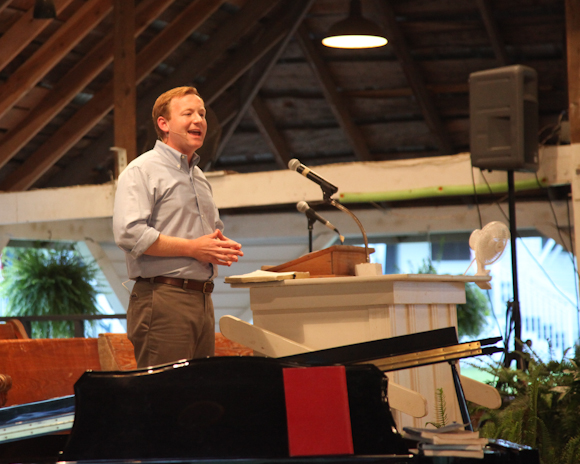Things have been moving quickly lately. In the last nine months, I’ve gotten married, ordained, and sent to serve a new church–Harvest Point United Methodist Church in Locust Grove, Georgia. There’s been so much to celebrate and also so much to do!
Lately, I’ve been feeling God nudging me to slow down. And that’s when I stumbled on a beautiful and short documentary called Godspeed. This documentary follows Matt Canlis–a young pastor who wanted to achieve great things for the Kindom of God. But as he was preparing to graduate seminary, his mentor, Eugene Peterson, gave him some wise words that put him on a different path in life and in ministry.
Eugene Peterson told him, “Go somewhere where God might do something, but you won’t get any credit for it.”
So, he and his wife moved to Scotland and began to slow down. They began moving at God’s speed.
The documentary is 30 minutes, and while that might sound like a big chunk of time from your day, if you’re in ministry, it’ll be worth it.



